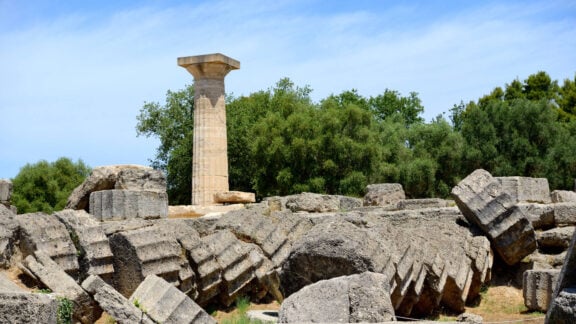It’s not surprising, the ancient Greeks had political and social science “down pat.” The word “oligarchy” is derived from the Greek word: ὀλιγαρχία (oligarchia) which has its origin in the Ancient Greek words: oligo-, meaning “few,” and -archy, meaning “rule”- that is “few rule”.
The word also describes a power base – a group of people who exercise the power in a state. When referring to one such person, in the singular – an oligarch.
The theory of oligarchy is discussed in Plato’s Republic (Book VIII; Greek: πέντε πολιτεῖαι) and Aristotle’s Politics. Plato details five types of regimes, aristocracy, timocracy, oligarchy, democracy, and tyranny.
Plato assigns a character to each of these regimes to illustrate what they stand for. The tyrannical man would represent tyranny, for example. The oligarchies’ love of money will override their desire for honour. They can’t move past that characteristic.
The word’s current meaning which does not deviate from its historical characteristic denotes a Russian billionaire businessperson – oligarch (usually a man) who controls sufficient resources to influence a nation’s politics.
Plato gives a detailed account in his work of the problems faced by the oligarchies of his day, (worth noting, history does repeat itself), which he considered as significantly more troubled than the former system, that of timocracy.
The following is a brief explanation of the social and political theory as advanced by Plato.
An oligarchy is originated by extending the behaviours already evident in a timocracy. In contrast to Platonic aristocrats, timocrats are allowed by their constitution to own property and thus accumulate wealth. Because of the pleasures derived therefrom, money, which can become addictive and obsessive, eventually, that state of mind is prized over virtue and honour, and the leaders of the state seek to alter the law to give way to accommodate to the materialistic lust of its citizens. As a result of this newfound appreciation for money, the governors rework the constitution yet again to restrict political power to the rich only. That is how a timocracy becomes an oligarchy.
The very distribution of political power prevents wise and virtuous, but poor, men from influencing public life while giving such possibility to the rich and unprincipled.
The instability caused by class divisions, by its very nature, an oligarchy is invariably divided between the rich and the poor. Plato saw it as the state’s responsibility to preclude income disparities from widening, by implementing laws that forbid citizens from enriching through exploitative contracts, or from becoming poor by laying waste to money and resources.
But these laws are never imposed in oligarchies since it is in the nature of the oligarchic state to seek to make inequality starker to feed the material lust of the oligarchies.
The poor underclass grows and many of them become either beggars or thugs imbued with anger at their condition. A revolutionary spirit will develop which will threaten the stability of the state from within.
Poor performance in military campaigns is indicative of oligarchy. Plato says they do poorly in military campaigns because the rich, who are few, make ineffective armies who are despondent (i.e., low-moral combatants) and are forced or have little choice but to join. Plato also argues that the oligarchies are afraid and overcome by the paranoia of arming the majority (the poor) due to fears of a revolution.
If a revolution does ensue, and the poor become victorious over the rich, the former expel the latter, or kill them, and proceed to divide their properties and political power between one another Plato argues.
Finally, that is how, according to Plato, democracy is established.
In the current day context, a businessperson can be considered an oligarch if the following conditions are satisfied:
– The use of monopolistic tactics to dominate an industry.
– They exercise sufficient political power to advance their own interests at the cost of the many.
– They control multiple businesses, which intensively coordinate their activities.
Oligarch is a term commonly used in the Western press to describe Russian business people. According to a study by journalist Alan Macleod on its use by the New York Times, CNN, and Fox News, 98% of the mentions of countries linked to oligarchs were related to Russia (overwhelmingly) or countries of the former Soviet Union.
Business people in the West (inclusive of Greece and other member EU states) are rarely referred to as oligarchs Mr Macleod’s study reveals unless they have a connection to Russia or the former Soviet Union.







